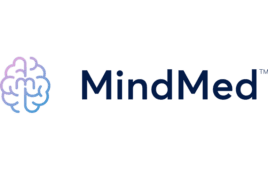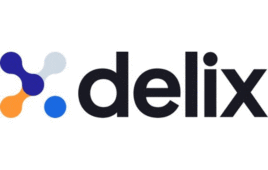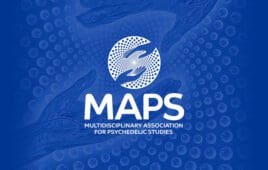 The FDA continues to signal openness to psychedelic-based therapies. Following its recent Breakthrough Therapy Designation (BTD) for a potential LSD-based anxiety treatment, the agency has extended the same status to Cybin Inc.‘s CYB003 for major depressive disorder (MDD). The move marks the first FDA Breakthrough Therapy Designation for an adjunctive, psychedelic-based Major Depressive Disorder treatment. This move expedites CYB003’s review process and provides increased FDA guidance throughout development.
The FDA continues to signal openness to psychedelic-based therapies. Following its recent Breakthrough Therapy Designation (BTD) for a potential LSD-based anxiety treatment, the agency has extended the same status to Cybin Inc.‘s CYB003 for major depressive disorder (MDD). The move marks the first FDA Breakthrough Therapy Designation for an adjunctive, psychedelic-based Major Depressive Disorder treatment. This move expedites CYB003’s review process and provides increased FDA guidance throughout development.
“I think there’s a positive attitude at the FDA,” said Doug Drysdale, CEO of Cybin. He noted that a significant number of agency representatives attended their end of Phase 2b meeting, indicating strong interest across departments. “They seem excited about the potential of these new treatments.”
FDA’s Breakthrough Designations for psychedelic and MDMA therapies
The FDA has previously granted Breakthrough Therapy Designation (BTD) to psilocybin-based therapies, including Compass Pathways for treatment-resistant depression (2018) and Usona Institute for major depressive disorder (2019). Additionally, in a parallel move, the FDA granted Breakthrough Therapy Designation to MDMA-assisted therapy for PTSD in 2017.
CYB003: A deuterated psilocybin-based therapy

Doug Drysdale
Unlike the aforementioned psilocybin therapies, CYB003 is engineered through deuteration, a process that could make the therapy more predictable and longer-lasting. “There are two elements of a molecule that are different from traditional psilocybin,” Drysdale said. Psilocybin itself is a prodrug that the body converts to psilocyin. “That metabolism varies from one patient to another and it also means that the molecule is not 100% efficient,” he said. “We have deuterated the active agent and therefore we remove that metabolic step, which we attribute to the faster onset.”
Preclinical studies show that deuteration also increases bioavailability and brain penetration. “We see about a 40% increase in the brain-to-plasma concentration ratios,” Drysdale said. “It seems like more of the drug is getting out of the periphery and into the site of action, the brain.” Cybin attributes the deuteration to driving therapeutic effects at considerably lower doses than conventional psilocybin. At 10 mg of CYB003, we’re seeing two-thirds of subjects score 100% on the visual analog scale. That’s a really robust psychedelic effect. It seems to be equivalent to about 25 mg of psilocybin.”
The company plans on launching a phase 3 study of CYB003 mid-year.
Phase 2 trial yields promising results for CYB003 in MDD
The Phase 2 trial provided strong evidence for CYB003’s potential in the treatment of MDD. In the 16 mg dose cohort, 75% of patients achieved remission (MADRS score ≤10) after just two doses, underscoring a substantial and sustained therapeutic effect. Across both dosing cohorts, patients experienced a significant drop in depression symptoms, with a mean improvement of 22 points on the MADRS scale at the four-month follow-up. For context, a 22-point MADRS drop can mean the difference between debilitating depression and a return to functioning.
The CYB003 trial observed no increased suicidal ideation or behavior. This contrasts with the Compass Pathways phase 2b study, which reported individual cases but no average worsening of suicidal ideation scores across treatment groups.
The trial included two dosing cohorts, with participants receiving either 12 mg or 16 mg of CYB003 per dose. The treatment consisted of two doses administered 21 days apart.

At Day 21, following the second dose, 53% and 44% of patients in the 12 mg and 16 mg groups, respectively, were classified as responders (achieving a 50% or greater reduction in MADRS scores). By Day 126 (four months after the initial dose), the percentage of responders increased to 75% in both dosing groups.
Furthermore, the proportion of patients achieving remission (MADRS score ≤10) also increased over time. At Day 21, 20% and 22% of patients in the 12mg and 16mg groups, respectively, were in remission. By Day 126, the remission rates rose to 60% in the 12mg group and a striking 75% in the 16mg group, indicating that the majority of patients treated with CYB003 no longer exhibited clinically significant symptoms of depression.
Key takeaways from the phase 2 trial
- CYB003 demonstrated robust and sustained antidepressant effects, with both 12 mg and 16 mg doses providing significant improvements in MADRS scores over a four-month period.
- The 16 mg dose of CYB003 led to a remarkably high remission rate of 75% at the four-month follow-up, suggesting a potent and long-lasting therapeutic benefit.
- The proportion of patients responding to treatment and achieving remission increased over time, highlighting the durability of CYB003’s antidepressant effects.
- The trial results support the progression of CYB003 to a pivotal Phase 3 study, bringing this innovative psilocybin-based therapy one step closer to potentially transforming the treatment landscape for MDD.
Rigorous design, positive safety profile
Cybin employed a robust design for the Phase 2 trial, using two dosing cohorts (12 mg and 16 mg) and the MADRS scale as the primary endpoint. Importantly, CYB003 demonstrated a favorable safety profile, with no serious adverse events, treatment discontinuations, or worsening of suicidal ideation reported.
These results are particularly encouraging as they suggest CYB003’s potential to provide long-lasting relief from depression with two doses. This level of efficacy, especially the high remission rate, surpasses what’s typically seen with current MDD treatments.
“From the beginning, our view was that a two-dose regimen would maximize the magnitude of benefit and make it last for as long as possible,” Drysdale said. Cybin is optimistic that the data will continue to be strong six months after the administration of two doses, potentially leading to an acute label “rather than some defined retreatment schedule,” Drysdale said. Such a schedule would be “very flexible for prescribers.”
Implications of breakthrough therapy designation
The BTD granted to CYB003 highlights the FDA’s recognition of its potential to significantly improve upon existing MDD therapies. This designation offers advantages such as expedited review, increased FDA guidance, and the potential for accelerated approval. With both BTD status and compelling Phase 2 data, CYB003 is well-positioned for a seamless transition to Phase 3 development and regulatory review.
“We’re positioning CYB003 as an adjunctive therapy, so patients won’t need to titrate off background medications, like SSRIs and SNRIs,” Drysdale said. The process can be unpredictable and challenging for patients. “When you consider that 70% of depressed patients are on SSRIs/SNRIs, that’s the group we’ll be targeting. It’s not likely this will be a first-line treatment given the current reimbursement landscape.”
“It’s great to see the entire sector maturing,” Drysdale concluded. “There was a lot of hype a couple of years ago, and it seemed like too many companies were jumping into the space. But the great news for patients is that we’re now seeing a handful of companies moving promising treatments forward with FDA support.”
Filed Under: clinical trials, Drug Discovery, Neurological Disease, Psychiatric/psychotropic drugs, Regulatory affairs



